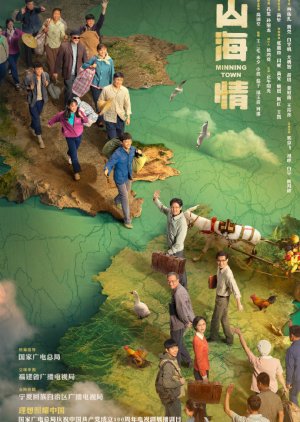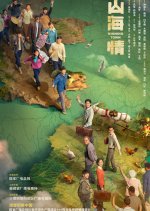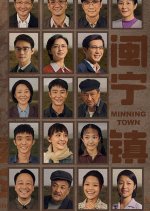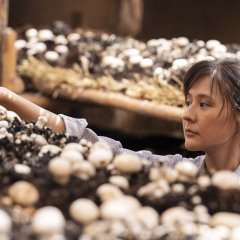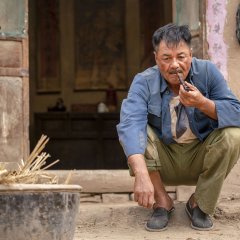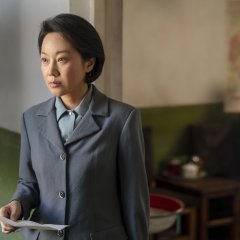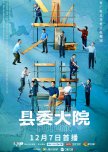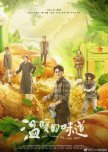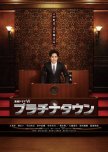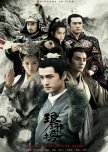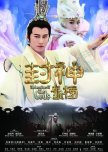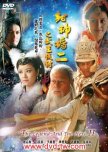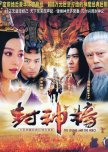It tells the story of villagers from Ningxia who migrated and built Minning Town from scratch. The government wants to build the rural housing land and encourages the farmers of Xiji Country to migrate or relocate. However, the conditions of the desert are too harsh. The villagers who moved there mostly left the second day. Ma Defu tries his best to get the villagers to stay and build the Minning Town. In 1996, the Party Central Committee made a strategic plan to promote counterpart cooperation between the East and the West, which identified Fujian counterparts to promote poverty alleviation work in Ningxia. As time passes, Minning Town was given a new lease of life. (Source: DramaWiki) Edit Translation
- English
- magyar / magyar nyelv
- עברית / עִבְרִית
- dansk
- Native Title: 山海情
- Also Known As: Min Ning Zhen , 闽宁镇 , Shan Hai Qing
- Director: Kong Sheng, Sun Mo Long
- Screenwriter: Gao Man Tang, Mo Xi
- Genres: Life, Drama
Where to Watch Minning Town
Cast & Credits
- Huang XuanMa De FuMain Role
- Zhang Jia YiMa Han ShuiMain Role
- Yan NiMagistrate YangMain Role
- Tao HongMother FuMain Role
- Huang JueLing Yi NongSupport Role
- Yao ChenWu Yue JuanSupport Role
Reviews

Brilliant
Apparently this was shot on location in the far Northwest, in 90 days, last autumn while the pandemic was still going strong. We already know how much magic a terrific cast can infuse a crappy script with power (I'm looking at you, Guardian), but when the script is as brilliant as the actors, you get sheer magic.The production company is known for some outstanding shows, Nirvana in Fire being one. They seem drawn to stories of heroism in increasingly realistic settings, a combination I find bewitching. The story concerns a dirt-poor village being resettled in the Gobi desert, which is in the process of being converted to arable land.
For me, the best part of Like a Flowing River, which I also loved, was the story of a small town as they went from virtual medieval backwardness, imposed by the Cultural Revolution, into the modernity of the eighties. In a way it seems to have been practice for this series, which nominally centers around the Ma family, but everyone is important. We get the lives of teens, and middle-aged people, and elderly. Men and women.
It's clear that this series was produced for the upcoming political celebration, with its uplifting message extolling hard work and integrity, but the substrate is a reminder of the inimical aftereffects of corrupt government officials. It is all demonstrated through small, entirely human stories, filled with tragic and triumph, love and sacrifice, joy and celebration, with a steadying thread of irony.
If I had any complaints it would be the very tightness of the story, that leaves certain emotional changes to the imagination. There is a lot of story conveyed in 23 episodes, over twenty years of time. I think--I wish--that it had been 25, or even 30 episodes. But we have what we have, containing many exquisite moments of perfect characterization begging rewatch. I can't say enough about every single performance, even people with no more than half a dozen lines (like a certain person's disabled husband). Sandwiched between two really lovely pieces of music.

If you build it they will come.
This is a story about the Chinese dream. It is vivid, it is visceral, it is unflinching, it is moving; it is about community, sacrifice and bold dreams. It is not a fairytale.As part of the government's fupin 扶贫 or poverty alleviation program, an impoverished village in Xihaigu, one of the least inhabitable regions of the land-locked Ningxia province, is to be resettled in Minning Town, a brand new settlement several hundred kilometers away on the edge of the Gobi Desert. Young Ma Defu, a fresh graduate and junior cadre member is tasked to convince the stroppy, irascible and rightly skeptical inhabitants of his home town to abandon their ancestral homes for the freaking Gobi desert!!! The hostile, savage and utterly desolate beauty of the terrain is stunningly captured in an arid, sun soaked and brilliant palette that immediately conveys the daunting enormity of the task ahead. The drama chronicles the immeasurable trials and hard won triumphs of Ma Defu and his team of dedicated experts who together with the intrepid, early settlers, had conviction that if you build it, they will come.
For a flag waving fupinju, this drama does not shy away from criticism - the sheer boldness and absurdity of the effort to tame the Gobi and how poorly planned and under resourced the initial effort was, the bureaucratic impediments, numerous setbacks and mis-steps, misguided policies, self serving and corrupt politicians are all scathingly laid bare while remaining focused on the main characters. Because first and foremost this story is about real people, mostly peasants who even when they are stupid and myopic, they are compellingly relatable - everybody has an aunt or an uncle or a neighbor or knows someone who is just like that. They are true backbone of resilience and endurance upon which the Chinese dream is built upon. This is the kind of drama that usually has me rolling my eyes, but in this case, practically every episode managed to move me to tears.
The standout character among the all-star cast of rivetingly portrayed characters is Rayzha Alimjan's haunting and inspiring depiction of Li Shui Hua, an ordinary peasant for whom the poverty alleviation program didn't come soon enough. Like many of the villagers, her name contains the character shuǐ 水 because water is such a scarce commodity that any name containing 水must bestow luck on the owner. But alas, her dreams are worth less than the price of a donkey and misfortunes befall the young Shui Hua. But this woman just rolls with the punches and nobly soldiers on, retaining a kind of inner joy, optimism and dignity that radiates from her dusty, sun burnt skin and labor torn body. When her dreams elude her, she moves on and sets and works toward new, more realistic goals. It is most fitting that the man with small vision tries to build her a well while the man with great vision builds her a dam. This is by far, the strongest, bravest, best written female character I have seen in c-drama. As for the actor, she was pretty great in Longest Day in Changan but this is her memorable, hopefully award winning performance.
As much as I enjoyed every moment of this drama, it took me an incredibly long time to watch it. This drama is not over dubbed and the characters speak a local Northwestern dialect that I initially struggled to understand and I really dislike reading subtitles. But I got used to the dialect after the first 8 or 9 episodes and after that I embraced the lively and colorful proliferation of local dialects. There were many hilarious lost in translation moments where the villagers struggled to communicate with experts from Fujian (a southern province) who were sent to help create a mushroom industry in their non-existent local economy.
If I must criticize, I think the drama is a bit too short and some of the time jumps at the end skip important moments in some of the characters' lives that I cared about, especially Defu. And I admit that the ins and outs of mushroom farming was too vivid and a bit too much information for me - I will never quite be able to enjoy mushrooms with the same relish again. That said, if the Ningxia vines are as resilient as the people, we may one day see some vintages of Ningxia wines that give their Bordeaux and Burgundy peers a run for their money.
Like most, this kind of genre is not my usual cup of tea. But this one is different - as a product of Daylight Entertainment, it is as close to a masterpiece as something of genre can be. It is marvelously well written and gorgeously shot, not at all dry or heavily bogged down by propaganda. At the same time, it really brings to life not just how China lifted 750mm people out of poverty (as defined by the World Bank) since 1990 (the beginning of this drama) but WHY they absolutely had to do it. It is an unprecedented achievement in the history of the world and this drama truly tells the story in a way that does it justice - from the perspective of ordinary people. Even though overall I rate this a 9.0, in many places and moments, it feels like a 10.0.

